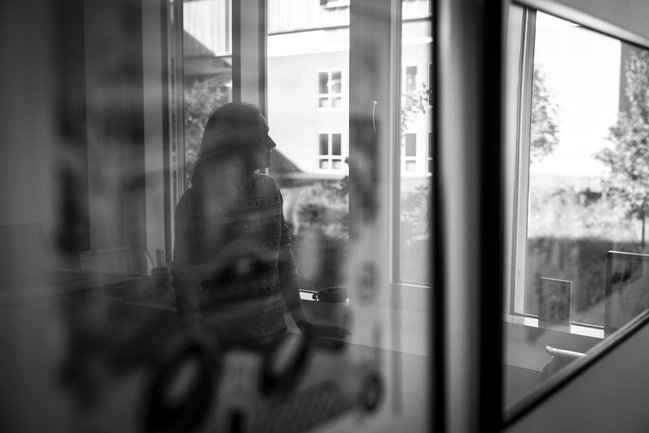New dean at Health: “It’s huge asset that I come directly from a research environment”
Becoming a doctor wasn’t in the cards for Anne-Mette Hvas. But she ended up studying medicine nonetheless, driven by a desire to make a difference. She went on to specialize in biochemistry and blood clots, earning her doctorate and becoming a senior hospital physician and professor; recently, she served on a government Covid task force. And on 1 December, she’ll become the new dean of the Faculty of Health.
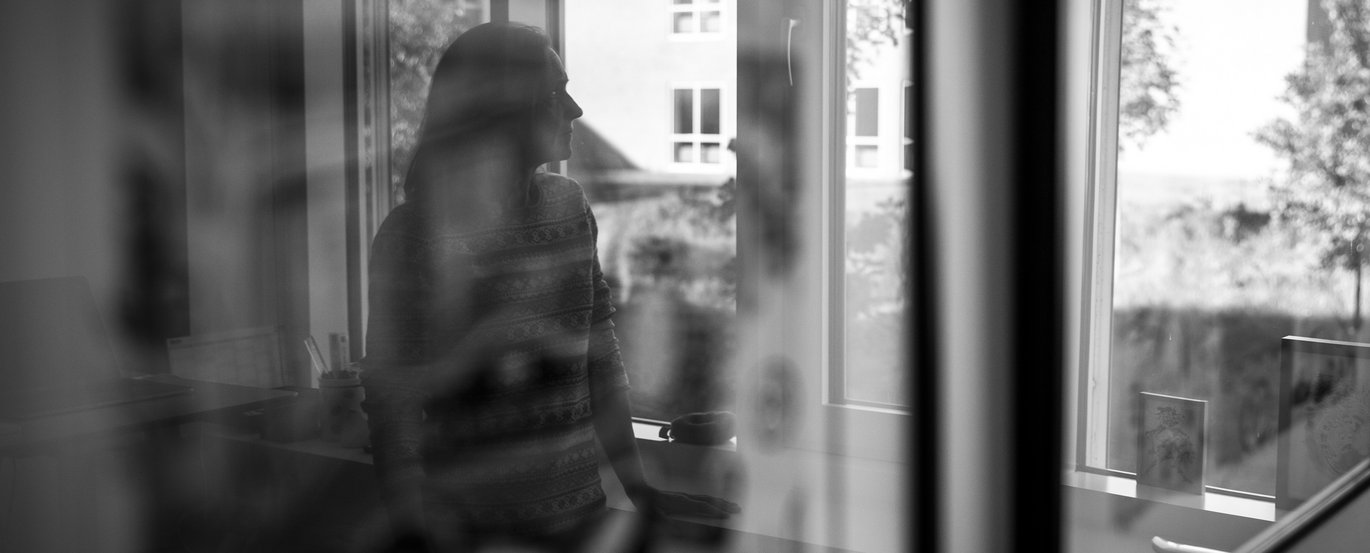
About Anne-Mette Hvas
- 57 years old
- Graduated as a medical doctor in 1994, PhD in 2001 and medical specialist in clinical biochemistry in 2005
- Is currently deputy head of the Department of Clinical Medicine at AU and a senior hospital physician at the Department of Clinical Biochemistry at Aarhus University Hospital
- Member of the Danish Committee on Research Misconduct
- Member of the National Committee on Health Research Ethics
- Lives in the neighborhood of Frederiksbjerg in Aarhus with her husband. Has two sons, ages 26 and 27.
I met with Anne-Mette Hvas in her office at Aarhus University Hospital in Skejby at the Department of Clinical Biochemistry. Although she’ll start her new job as dean of the Faculty of Health on December 1st, she hasn’t started packing the heavy biochemistry tomes in her bookcase yet.
“I’m still doing my job as senior hospital physician here at the department – answering the hotline, holding conferences and diagnosing patients. And of course, I also have my research group that I’m still running as before, which also goes for my role as deputy head of department. So I’m actually not shutting everything down yet.”

But she’s already feeling the effects of one change in particular:
“Well, as you know that my new role isn’t a research position, and that means that my own research has to take a back seat now to make room for a greater focus on leadership and administration. I’m going to finish the projects I’m involved in, but I’m not starting new research projects, and in fact, that’s already freeing up quite a bit of time because I don’t have to start applying for new research funding and launching protocols,” she said.
A foot in both camps
Until now, research has been a central aspect of Hvas’ professional identity since she finished her medical training 27 years ago. And she’s invested over a decade in developing her current research group.
“I wasn’t considering applying for a new job until this opportunity presented itself, a bit unexpectedly,” she explained, referring to the fact that former dean Lars Bo Nielsen left the position to become director of the Danish Medicines Agency.
“That gave me an occasion to consider whether that might be the right path for me, because opportunities to work with research and education at a strategic level don’t come along often. You have to seize them when they arise,” she said.
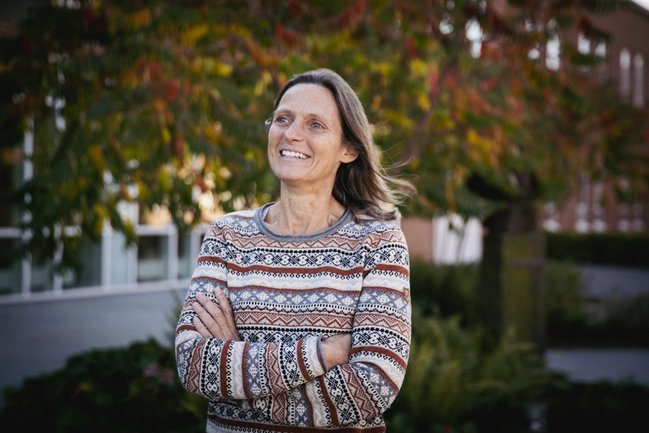
As deputy head of the Department of Clinical Medicine, Hvas has had opportunity to use her research background in a new way, working with the frameworks and conditions for research in a way that’s not limited to concrete research projects.
“I see it as a huge asset that I come directly from a research environment. I have a foot in both camps, and I’m familiar with both the world of research and the administrative level,” she said.
Five quick questions for Anne-Mette Hvas
The last time my blood pressure went through the roof was...: “That doesn’t happen nearly as often as it used to. What can really make my blood boil is injustice.”
I can't imagine anything better than when I: “sit in the sauna at the winter bathing club at Ballehage looking out over the sea with great people.”
Very few people know that I: “never cook. My husband does. Voluntarily, not of necessity.”
My favorite app: “I don’t use that many apps, but one of the ones I use is DR LYD. I enjoy listening to ‘Genstart’ (a news podcast, ed.).”
Are you taking time off for the autumn break? If so, where? “I’m taking two days of vacation at our summer house on Fanø.”
She will draw on this insight as dean, she explained.
“There’s a really long way from us down here who are actively involved in research up to the strategic level. And I’m interested in how what comes from up above functions in the context of research groups and research environments. Both in relation to how it can be implemented and in relation to how it can be informed by input from research. That we at the management level look at how it affects researchers that we introduce an internationalisation requirement, for example, and are there other ways to meet that requirement,” Hvas explained.
“Implementing a strategy at every level is a big job. But it’s important, because otherwise there’s a risk that the levels get disconnected,” she said.
It’s classic and banal - I wanted to make a difference
That Anne-Mette Hvas would one day become one of Denmark’s leading experts in the field of biochemistry actually wasn’t in the cards. In fact, it wouldn’t be at all odd if the bookcases behind her were filled with novels instead.
“I come from a real family of humanists - you know, a vicar and a teacher - and I studied modern languages in upper secondary school, and when I was young, I was very interested in literature. So I’d actually though that’s what I was going to work with.”
But after a trip abroad, a desire to make a difference took root in Hvas.
“It’s pretty classic, I guess, and actually pretty banal too - and I think that’s how it is for a lot of doctors. But I wanted to help change the world. So I applied to university with medicine as my first choice and comparative literature as my second. But ended up getting in to the medical programme.”
As a student, Hvas still felt the desire to change the world, and so she travelled to Africa and other countries; her intention was to work in the field with anaesthesia or surgery, with Doctors without Borders for example.
“But I’m not as good with my hands as I would like to be,” she said, and so she decided against these career paths, both of which require a high degree of manual dexterity.
The encounter with Nexø was decisive
Hvas put aside her dreams of a career abroad and decided to become a researcher instead.
“It’s often the case that the doctors people meet along the way have a significant impact on what specialization they end up choosing. That’s how it was for me too. When I wrote my PhD in the hematology department, where I actually enjoyed being, I had Ebba Nexø (emerita professor at the Department of Clinical Medicine, ed.) as co-supervisor, and she ended up having a decisive influence on my choice of specialization,” Hvas said, adding:
“Ebba Nexø is an exceptionally inspiring person in relation to research, to life in general – and literature as well, in fact. And at that point, my greatest dream was to work with her.”
She was your professional role model?
“Yes, she was - and she still is.”
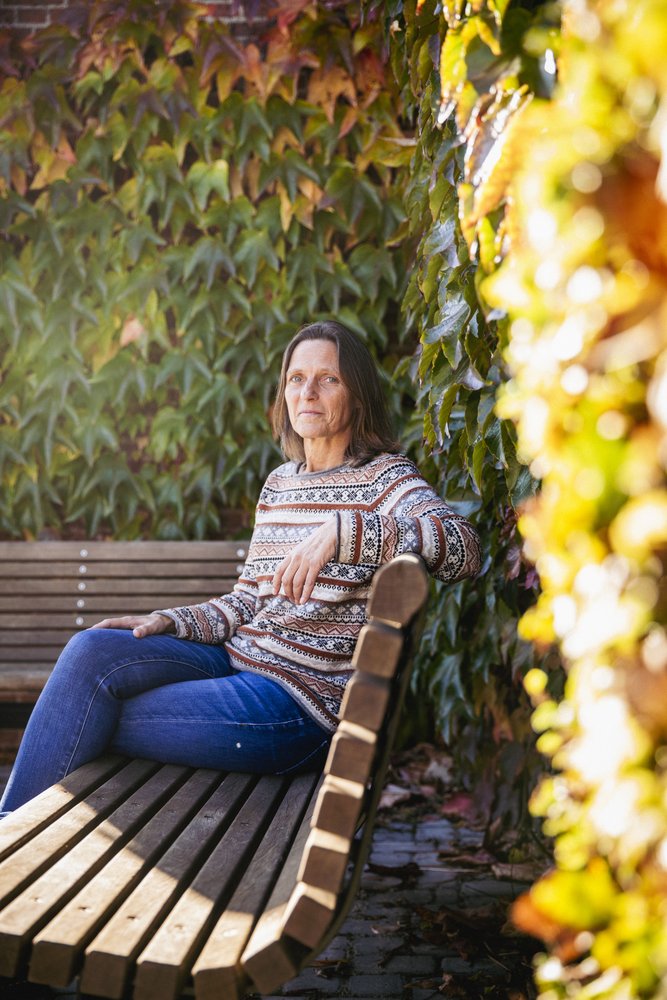
Hvas conducted research on vitamin B12 together with Professor Nexø for about a decade. But when she took a new position at the Centre for Haemophilia and Thrombosis at the former Skejby Hospital, she became so fascinated by the diagnosis and treatment of blood loss and clotting that she realized that she had to switch research fields.
“It took me four years to switch research fields, from when I shut down the old one and was ready to gets started on the new one.”
From a corner of a corner to Covid task force
Biochemistry, blood and platelets have been the focus of her research and clinical practice ever since. She describes her field as a corner of a corner. Nonetheless, her research became the center of attention this spring in connection with Covid-19:
during the worldwide roll-out of Covid vaccines, when medical experts began to suspect that the AstraZeneca drug was linked to a rare syndrome that caused blood clots. Researchers discovered that the presence of a particular antibody in the blood caused platelets to clump together, resulting in numerous blood clots.
Hvas got involved because the first Danish patient who developed this type of blood clot after receiving the Astra Zeneca vaccine was from Jutland, and Hvas was already involved in discussions around the complications this patient was experiencing.
Hvas then participated in the expert task force set up by Søren Brostrøm, head of the Danish Health Authority. She also worked closely with the Danish Medicines Agency on the evaluation of the vaccine roll-out in Denmark.
“It was an amazing experience to witness the work of both agencies and the professionalism they demonstrated. But what impressed me most was Søren Brostrøm’s ability to set up this group and get the members to work together. He created an atmosphere in which people were willing to put everything else on hold to work together and focus on the task in a professional context that’s otherwise very competitive. Naturally, there were lots of people behind him, but I’d say that he was a decisive figure,” Hvas said.
She describes it as an incredibly exciting period in which to be a doctor.
“In addition to experiencing something I’ve been geeking around with at the cellular level down in the lab suddenly get so much attention,” she added.
Making the role of the universities in society visible
Hvas wants to sustain the public acknowledgement that academia - including the universities - has received due to Covid when she leaves her lab at the hospital and takes her seat behind the desk in the deans’ office in the Victor Albeck building in the University Park.
“I’d like to make what we as a university contribute to society visible. Take Covid and everything the university has contributed in relation to researching the disease and the effects of vaccination. It’s played an enormous role. Until now, there’s been a lot of focus on individuals, but I’d like to make the needs of society we as a university play a role in meeting more visible. We’re not just for the elite. To a high degree, the knowledge created here is created in order to meet the challenges facing society as a whole.”
Not a world about relocation. Yet
One of the tasks on the new dean’s desk is the government’s plans to decentralise some degree programmes from large cities to smaller communities. In addition to the general agenda of moving programmes out of the four largest cities, for the Faculty of Health, the reform also involves a political desire to establish a new dentistry programme in Hjørring.
“It’s an important matter that I’m not going to make any public statements about until I’ve assumed my duties as dean,” Hvas stated.
The importance and value of teaching
On the other hand, she was more than happy to speak about her plans to give teaching greater weight in regard to evaluating professional qualifications and the importance of working to create equality and a level playing field in academia.
"Developing courses and teaching is extremely resource-intensive, and I think it's important to acknowledge and discuss the importance and value of this work. Partly because it’s a prerequisite for our degree programmes - including our doctoral programmes. And in part because those who teach a lot may end up paying a price in the form of lost research, which means fewer publications. So it’s important that we also place a high value on that aspect instead of only looking at research when we evaluate a researcher’s qualifications,” Hvas said.
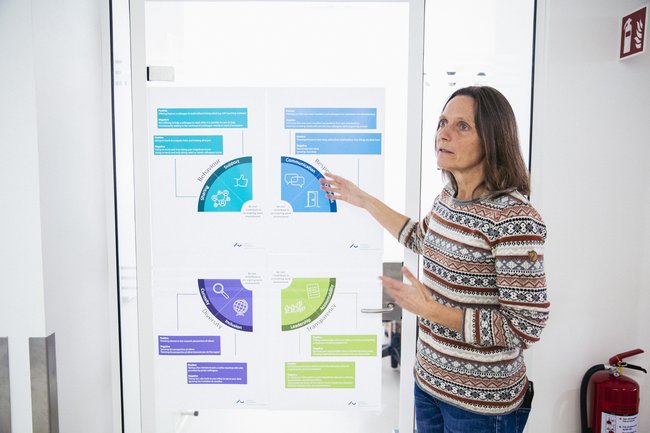
Research culture is just as important as external funding
Hvas has been actively working to promote gender equality for a number of years; she is part of the activist group Linje X, which is comprised of several female researchers at the Department of Clinical Medicine who are working together to promote equality within academia.
“My commitment to gender equality is derived from my intense interest in research culture. How we create a culture in which people thrive. As I see it, a good research culture is just as important as external funding. It’s a prerequisite for people performing at their beset and wanting to stay. So on the one hand, I’m interested in the fairness aspect, in other words whether we have equal condition under the given framework, and on the other hand, in developing and retaining talents,” Hvas explained.
“One challenge is that the factual numbers in relation to equal conditions for research are often contested. In other words, people ask: Do we even have a problem? Do we have inequality? Because it’s simply a fact that while we’ve had a preponderance of female PhD students for a number of years, there are still very few female professors,” Hvas said.
She notes that gender equality is already a prioritised action area at the university. But she wants to make sure that there’s complete transparency in this area, and that the university continues to evaluate its progress and set new targets.
“What’s crucial for me is that we have transparency in this area in the form of statistics, and that we have utterly transparent and clear procedures for employment at the different academic levels.
Hvas is very much looking forward to becoming part of the senior management team and taking charge of the Faculty of Health.
"I'm really looking forward to it. I am looking forward to working for health science research in a broader perspective. I know the Department of Clinical Medicine well, but I'm very much looking forward to working with the other departments, and getting acquainted with the entire palette of methodology, research and thought. Getting into the engine room at all of the faculty’s departments and following what’s going on and what strengths and challenges they have,” she said.
Translated by Lenore Messick
About Anne-Mette Hvas
- 57 years old
- Graduated as a medical doctor in 1994, PhD in 2001 and medical specialist in clinical biochemistry in 2005
- Is currently deputy head of the Department of Clinical Medicine at AU and a senior hospital physician at the Department of Clinical Biochemistry at Aarhus University Hospital
- Member of the Danish Committee on Research Misconduct
- Member of the National Committee on Health Research Ethics
- Lives in the neighborhood of Frederiksbjerg in Aarhus with her husband. Has two sons, ages 26 and 27.
Five quick questions for Anne-Mette Hvas
The last time my blood pressure went through the roof was...: “That doesn’t happen nearly as often as it used to. What can really make my blood boil is injustice.”
I can't imagine anything better than when I: “sit in the sauna at the winter bathing club at Ballehage looking out over the sea with great people.”
Very few people know that I: “never cook. My husband does. Voluntarily, not of necessity.”
My favorite app: “I don’t use that many apps, but one of the ones I use is DR LYD. I enjoy listening to ‘Genstart’ (a news podcast, ed.).”
Are you taking time off for the autumn break? If so, where? “I’m taking two days of vacation at our summer house on Fanø.”
